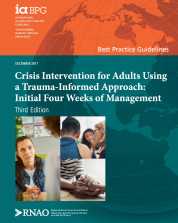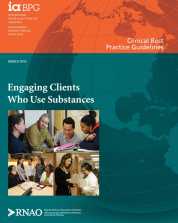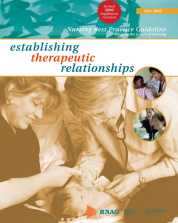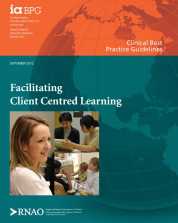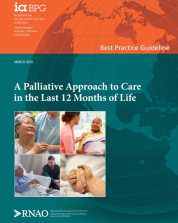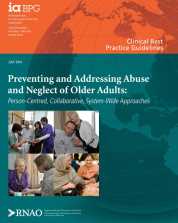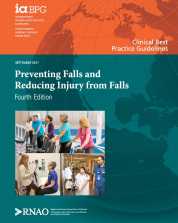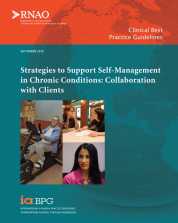The purpose of this best practice guideline is to focus on how nurses and the interprofessional team can provide effective trauma-informed crisis interventions (immediately and to up to four weeks post-crisis) in adults (18 years and older) in order to optimize evidence-based practices and clinical outcomes. The guideline is applicable in all practice settings and promotes consistent, evidence-based response and care.
The purpose of this best practice guideline is to provide nurses and the interprofessional team across all care settings with evidence-based recommendations related to assessment and interventions for individuals aged 11 years and older who use substances and may be at risk for or experiencing a substance use disorder.
The purpose of this best practice guideline (BPG) is to address the therapeutic relationship and its central importance to nursing practice. Effective nursing practice is dependent on an effective therapeutic relationship between the nurse and the client. The guideline addresses the qualities and capacities of an effective therapeutic relationship, the state of knowledge, and the knowledge needed to be effective in a therapeutic relationship.
The aim of this best practice guideline (BPG) is to provide evidence-based recommendations for Registered Nurses, Registered Practical Nurses and other health-care providers to facilitate client-centred learning that promotes and enables clients to take action for their health.
The purpose of this best practice guideline (BPG) is to provide nurses, the interprofessional team and caregivers with evidence-based recommendations for the provision of oral care for adults (18 years of age and older) that will:
• promote an interprofessional approach to providing oral care,
• enhance the delivery of oral care interventions, and
• ultimately lead to positive oral health outcomes for persons.
This best practice guideline (BPG) provides evidence-based recommendations to nurses and the interprofessional health team who support adults experiencing the last 12 months of a progressive life-limiting illness, and their families and caregivers.
The purposes of this best practice guideline (BPG) are to expand the awareness of abuse and neglect of older adults and to provide evidence-based recommendations for preventing and addressing abuse and neglect in all health-care settings across the continuum of care in Canada.
This best practice guideline (BPG) focuses on the prevention of falls and fall injuries in all adults at risk for falls – including those living in the community – who are receiving care from nurses or other health-care providers.
This best practice guideline (BPG) focuses on bladder and bowel management in adults (aged 18 years and older).
The purpose of this best practice guideline (BPG) is to provide evidence-based recommendations for registered nurses and registered practical nurses in self-management support. These recommendations identify strategies and interventions that enhance an individual’s ability to manage their chronic health condition.
